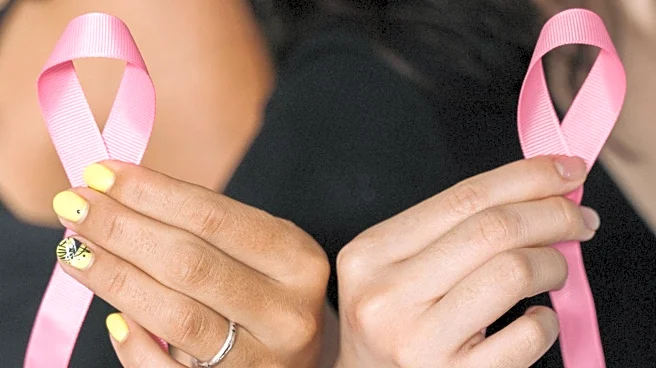What's Happening?
A survey commissioned by Roche has found that millennials, aged 29-42, are at the highest risk of missing crucial cervical cancer screenings. The research, conducted across six European countries, shows that 31% of eligible millennials have postponed
or missed their screening appointments, a rate 27% higher than the average across all age groups. Despite the availability of free or subsidized screening services, millennials face challenges such as balancing careers, caregiving responsibilities, and societal pressures, which push cervical screenings to the bottom of their priorities. The survey highlights the need for practical interventions to address these barriers and improve attendance rates.
Why It's Important?
The findings underscore the importance of cervical cancer screenings in preventing the disease, which affects over 600,000 women globally each year. The delay in screenings among millennials could lead to increased health risks and higher healthcare costs in the long term. The research calls attention to the need for healthcare systems to evolve and offer flexible, person-centered screening options. Addressing the barriers faced by millennials is crucial for improving public health outcomes and reducing the incidence of cervical cancer.
What's Next?
Roche is committed to eliminating cervical cancer through collective action, focusing on reducing barriers to access and normalizing conversations about cervical health. The company is working with healthcare systems, governments, and communities to provide flexible screening options, such as self-collection, and to promote inclusive education and communication about early detection. These efforts aim to empower individuals to take action for their health and prevent cervical cancer from claiming more lives.
Beyond the Headlines
The survey highlights cultural discomfort and lack of awareness around cervical screenings, which contribute to low attendance rates. Addressing these issues requires fostering open dialogue and community engagement to normalize cervical health as a shared responsibility. Emotional and practical support, such as workplace flexibility and encouragement from family and friends, are key to improving screening attendance among millennials.
















